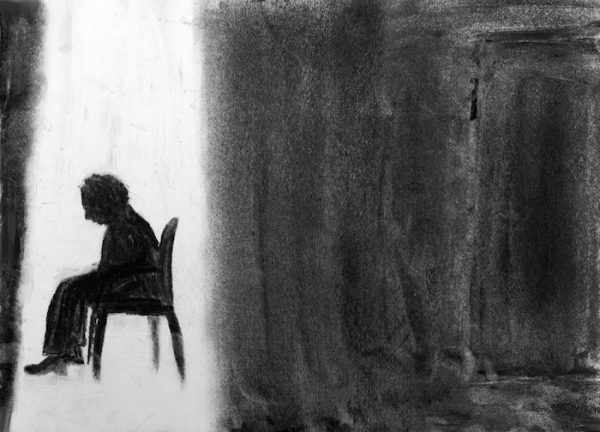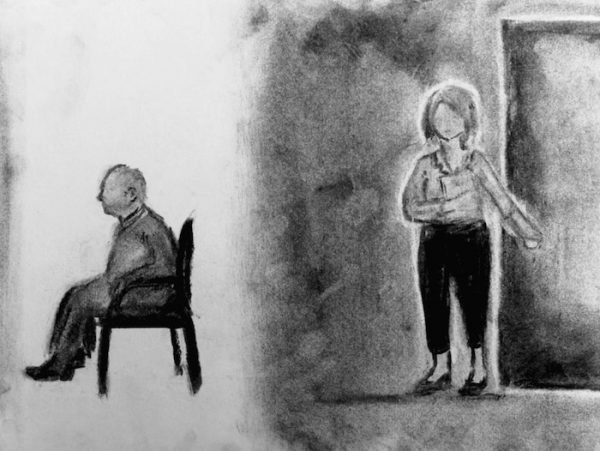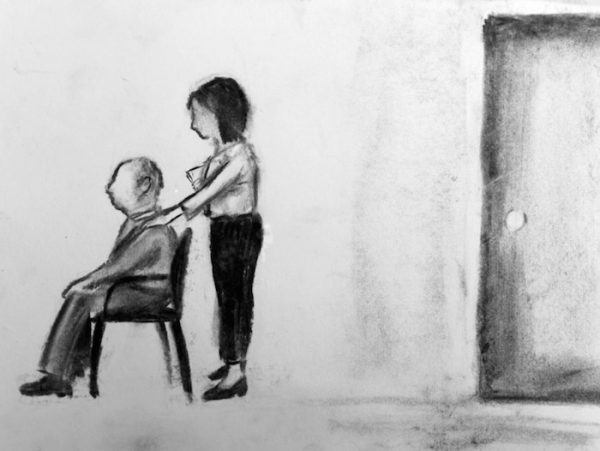Many GPs lack confidence when it comes to end of life care. Thinking back to my own family’s experiences, I explore the support available for doctors.
It was cold even for February and my headlights lit up sheets of rain as I pulled into our parking space. I was surprised to see my wife running towards me in the rear view mirror.
“I think you should come inside and sit down,” she said gently. I remember her stood there in her dressing gown and slippers. She was getting completely drenched. But that might be the kind of detail you misremember when your brain is sent into a sudden spin.
“…there’s been some bad news, your Mum rang, your Dad…..his oesophagus, cancer, blah blah blah………they don’t know, they don’t know, they don’t know. You need to call your mum…”
That “they don’t know” turned into more “they don’t know”. For 5–6 weeks, through endless appointments with specialists, scans, and doctor’s appointments. Eventually they did know. A consultant talked Dad and Mum through end of life care options.
But it was his GP who initially referred him after he’d had problems swallowing (he’d been a little sceptical that there was a problem). It was his GP who acted as a day-to-day source of contact in the days, weeks and months ahead.
And it was the same GP who Mum and Dad would visit between hospital appointments — to check in with, for prescriptions to help with pain or sleeping and, more than anything, for someone to talk to.
Challenging conversations
“It can feel overwhelming that the needs and trust of the patient and their carers are solely placed on you. Particularly when you’re working in an out-of-hours setting, or on-call within the practice. You can feel very isolated,” says Dr Elise Long, a salaried GP working in Cardiff.
“I’ve personally felt like I need to further my clinical knowledge of symptom management and my communication skills.”
Elise isn’t alone.
Many GPs find it difficult to discuss death and dying with patients. Research shows that doctors sometimes don’t initiate end of life care conversations and many say they find it more comfortable when the subject is brought up by patients. Clearly, it is a distressing topic.
“There’s bound to be a lack of confidence in some quarters,” says Marie Curie Medical Director, Professor Bill Noble. “It’s never straightforward. So much depends on your experience and training background.”
Some patients say they don’t want further information from GPs. But many want a clear idea about the future in order to start planning ahead. So how do GPs go about assessing these different needs? And how do they effectively approach these very difficult conversations?
Developing relationships
Zoe Hutchinson qualified as a GP three years ago and now works in Littleport, Cambridgeshire. It’s a remote location, where she says many patients can feel isolated — particularly after being diagnosed with a terminal illness.
She says her undergraduate medical training inspired a passion for palliative care: “It’s an important issue. All our patients face the prospect of needing end of life care at some point”.
Dr Hutchinson embraces her position as the central point of contact for her rural patients. She talks about the time she spends liaising with district nurses and others involved in end of life care, visiting remote patients, identifying the need for ‘just in case’ medicines, and establishing the needs and wishes of the patient and their family.
“But really, having an open conversation with the patient and their family is the most important thing. To do that you need to be able to understand when a patient is ready to have conversations about end of life care. It’s hard. One of my patients suffers from anxiety. I can tell they don’t want to talk about death and dying yet. It’s about really getting to know them,” she says.
I ask several other GPs about what they think makes for good end of life care. They all agree: communication. Specifically: communication based on developing genuine human relationships with patients.
A recent video collaboration between the GMC and National Council for Palliative Care explores the same issue (see it here). Patients and family members talk about the difference it makes to be treated like individuals. GPs talk about the need for us all to talk about death more openly. But when distressing conversations need to be had, it’s important they happen in a planned way, at the right time, in private, and with relevant family members or carers present.
Clarity and communication
After Dad’s diagnosis, I’d call my parents on a daily basis when I couldn’t visit. We were all grasping at that stage: for information, for certainty, for hope. I could sense their frustration as they tried to remember what they’d been told by the consultant or GP.
Often the details seemed jumbled or confused. It seemed to me like things hadn’t always been explained particularly well. When I mentioned this to Mum recently, she said the GP had been very good, but it seemed he was hearing updates about Dad’s condition for the first time from them.
When you feel all at sea, clear communication is like a lifebelt. Asking patients to repeat information to make sure they’ve understood it is one technique GPs use. But there’s another question: has information about the patient been shared as effectively as possible between people involved in caring for the patient?
It’s a problem that’s being tackled through electronic tools like EPaCCs(electronic palliative care coordination systems), with which healthcare professionals involved in palliative care can share information more effectively.
This gives everyone involved access to timely information. It also helps identify those patients who are approaching the end of their life, so important conversations can take place and the wishes of patients and families considered. And it ensures patients can be referred to services at the right time.
Gold plating end of life care
But what else can be done to improve the quality of support GPs can offer? Everyone I spoke to talked about the need for more training with a palliative care focus.
In 2013, the Royal College of General Practitioners and Marie Curie formed a partnership to improve the end of life care offered by GPs. Since 2015, the partnership has produced a series of one-day end of life masterclasses for GPs, run by experts across the UK. More classes are planned for later in 2016.
“When you ask GPs what they need to know about palliative care they say they need: confidence about communication, knowledge about symptom control and good relationships with local nursing service,” says Professor Noble. The masterclasses there cover the issues GPs themselves have identified as things they need to know more about. Also covered are medical-legal issues and general changes to policy and practice.
“GP training gives you a good base to start from. The problem is you need to know something about everything,” says Dr Michael Brookes, an RCGP/Marie Curie Clinical Fellow who helped run several of the sessions. “It’s impossible to train for every eventuality. We need to give people the skills to deal with end of life effectively. That also means fostering a hunger for self-improvement.”
Another outcome of the partnership has been the Palliative Care End of Life Toolkit, which supports patients and GPs at the end of life. “End of life care is one of the biggest things you can do to make a difference. You can see the effect being able to support a ‘good death’ has on everyone,” says Dr Brookes.
Both Dr Long and Dr Hutchinson attended our masterclasses. “It was an amazing opportunity to meet and hear from palliative care leaders. And amazingly, given the calibre of speakers, it was completely free,” says Long.
“I’d always been interested in end of life care during my GP training,” says Dr Hutchinson. “I’m already putting tips on prescribing ‘just in case’ medicines into practice, and the advice on difficult ‘bad news’ conversations was invaluable. Training has improved. But the masterclasses help to gold plate it.”
What next?
When I ask Professor Noble what he thinks needs to be our next focus, his answer is immediate: 24/7 end of life care. More needs to be done to make sure high-quality 24/7 end of life care is available to patients within communities. GPs are a central point of contact for patients who’ve been affected by terminal illness, and their families. They play a crucial role in delivering this service effectively.
“At the moment GPs very rarely provide out-of-hours care to their own patients. It’s sometimes handed over to emergency call systems. And that’s problematic,” says Professor Noble. “Continuity matters more in end of life than in any other area. Patients shouldn’t have to go over the same ground again and again.”
Six months after his initial diagnosis, Dad was rushed into hospital for what would be the final time. Mum remembers the GP being limited in his ability to do all that much during the previous six months. He was more a point of contact — someone to talk to when things got tough. But Dad liked him. That was important
After Dad died, the GP rang my mum to offer his condolences. “Any time you want to come in and talk, we’re here for you,” she remembers him saying. It meant a lot. It still does.
To find out more about how Marie Curie provide care and support at the end of life, visit their website.
Complete Article HERE!



